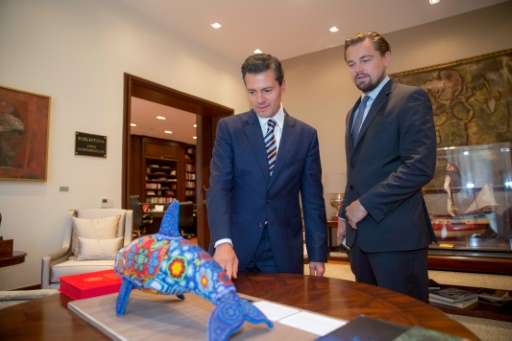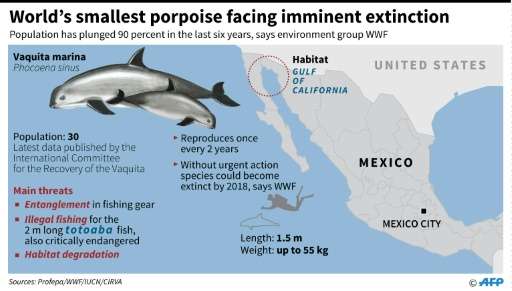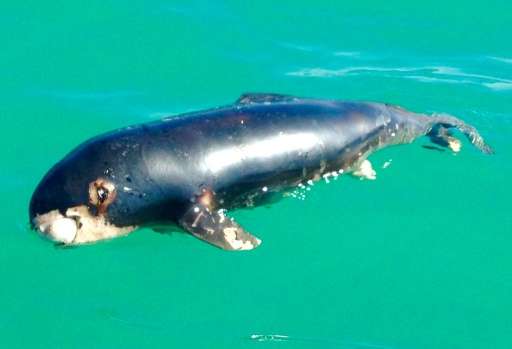DiCaprio, Mexico in push to save vaquita porpoise

Hollywood star Leonardo DiCaprio and Mexican President Enrique Pena Nieto agreed Wednesday to increase efforts to save the vaquita marina porpoise, burying the hatchet in a Twitter feud over the endangered species.
In May, DiCaprio asked his millions of Twitter and Instagram followers to sign a petition calling on Pena Nieto to do more to protect the world's smallest porpoise, which is on the verge of extinction.
The Mexican president responded with what was, for him, an unprecedented flurry of seven tweets in English defending his government's efforts to save the estimated 30 vaquitas that remain.
The two were all smiles, however, as they shook hands and signed a deal in which Mexico promised to protect the marine ecosystems of the Gulf of California and in particular the vaquita, which is found only there.
The plan is backed by DiCaprio's foundation and that of Mexican telecoms billionaire Carlos Slim.
Slim—the world's sixth-richest person, according to Forbes magazine—also signed the deal.
"Now more than ever, the world is looking for bold leadership at every level to tackle climate change and environmental conservation issues," DiCaprio said in a statement.
"This action is a critical step towards ensuring that the Gulf of California continues to be both vibrant and productive, especially for species like the critically endangered vaquita."

The Gulf of California, which was officially listed as a World Heritage site in 2005, is a source for half of Mexico's fisheries production.
Pena Nieto said Mexico "understands its responsibility as one of the most biodiverse countries in the world" and would make a "historic effort" to protect the vaquita.
Under the deal, Mexico will impose a permanent ban on gillnets in the vaquita's habitat. The nets—used to catch another species, the totoaba fish—have contributed to wiping out the vaquita.
Mexico also pledged to develop new fishing gear and techniques for local communities.
The World Wildlife Fund (WWF) praised the "landmark agreement."

The environmental group has warned the vaquita risks going extinct in 2018.
The threat is fueled by demand for totoaba swim bladders in China, where they are considered a delicacy and can fetch $20,000 per kilogram.
WWF called on Mexico to go further by launching coordinated efforts with China and the United States to end the illegal totoaba trade.
© 2017 AFP


















